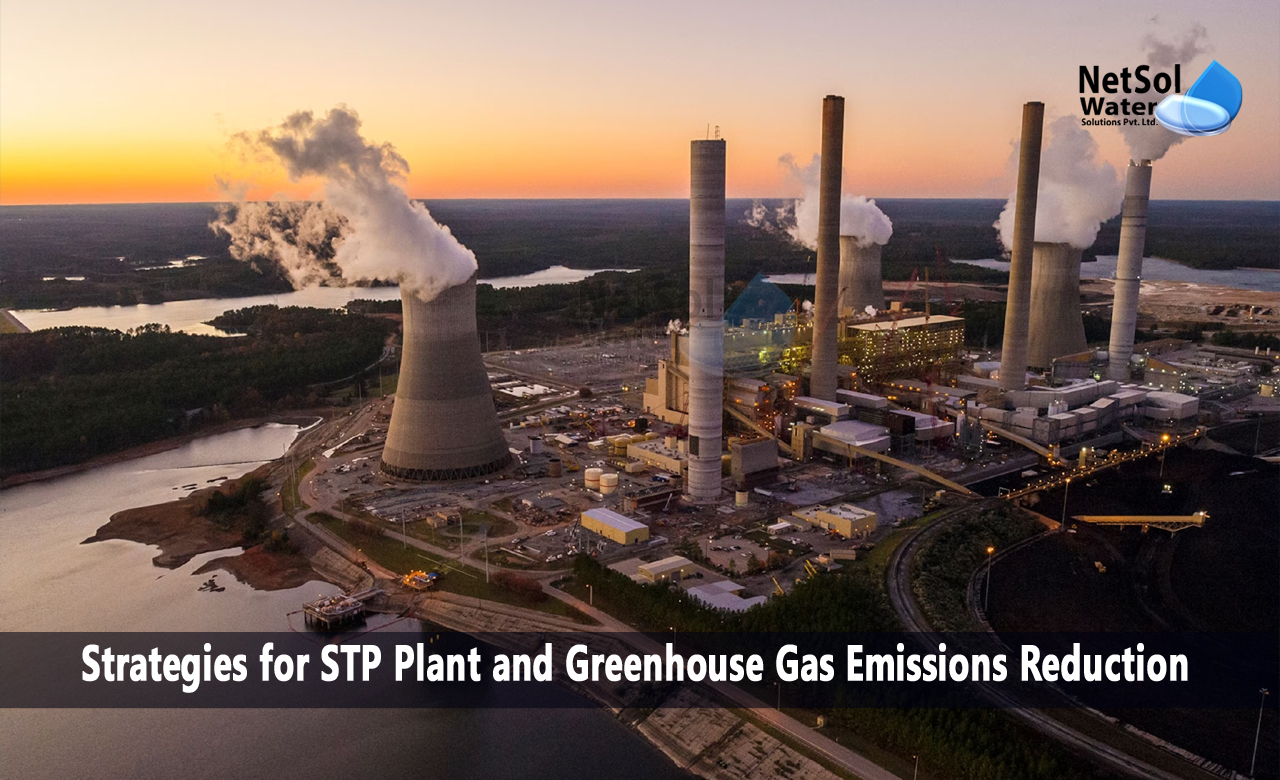Strategies for STP Plant and Greenhouse Gas Emissions Reduction
As the world continues to grapple with the urgent need to combat climate change, industries across various sectors are exploring innovative ways to reduce greenhouse gas (GHG) emissions. Among these industries, sewage treatment plants (STPs) play a crucial role in environmental sustainability and have the potential to significantly contribute to a low-carbon future. By implementing effective strategies and technologies, STPs can not only treat wastewater but also reduce their carbon footprint, making them an essential component of a sustainable and resilient society.
The Carbon Footprint of Sewage Treatment Plants:
Sewage treatment plants are known to be significant contributors to GHG emissions. The primary sources of carbon emissions in STPs include energy consumption for wastewater treatment processes, emissions from anaerobic decomposition of organic matter, and the release of methane gas. It is estimated that the global wastewater sector accounts for approximately 3% of total GHG emissions, with STPs being a notable contributor.
Strategies for Greenhouse Gas Emissions Reduction:
- Energy Efficiency and Renewable Energy Integration: Improving energy efficiency within STPs can greatly reduce their carbon footprint. Upgrading equipment, optimizing processes, and implementing energy management systems can minimize energy consumption. Additionally, integrating renewable energy sources such as solar or wind power can help offset electricity demands and further reduce GHG emissions.
- Anaerobic Digestion and Methane Capture: Anaerobic digestion is a process that breaks down organic matter in wastewater, generating biogas that primarily consists of methane. By capturing and utilizing this methane, STPs can turn it into a valuable energy source. Installing anaerobic digesters and utilizing the biogas for electricity or heat generation can effectively reduce GHG emissions while providing an alternative energy supply.
- Advanced Treatment Technologies: Implementing advanced treatment technologies can enhance the removal of organic matter and pollutants from wastewater. By optimizing treatment processes, STPs can minimize the production of methane and other GHG emissions. Technologies such as membrane bioreactors, advanced oxidation processes, and nutrient recovery systems can contribute to cleaner effluent and reduced carbon footprint.
- Co-Digestion and Biogas Optimization: Co-digestion involves the addition of external organic waste streams, such as food waste or agricultural residues, to the anaerobic digestion process in STPs. This practice increases biogas production and improves the overall efficiency of the digestion process. Co-digestion not only reduces GHG emissions but also offers opportunities for waste diversion and resource recovery.
- Monitoring and Reporting: Effective monitoring and reporting systems are essential for tracking energy consumption, emissions, and overall environmental performance of STPs. Regular assessments and data analysis help identify areas for improvement, set targets, and measure the success of emissions reduction strategies. Transparent reporting also promotes accountability and encourages continuous efforts towards a low-carbon future.
Conclusion:
Sewage treatment plants have a critical role to play in mitigating climate change by adopting strategies to reduce GHG emissions. Through energy efficiency improvements, anaerobic digestion, advanced treatment technologies, co-digestion, and robust monitoring and reporting practices, STPs can significantly contribute to a low-carbon future. By implementing these strategies, STPs can not only treat wastewater effectively but also act as carbon-neutral or even carbon-negative entities, helping society move towards a more sustainable and resilient future.
It is imperative for policymakers, industry stakeholders, and communities to recognize the potential of sewage treatment plants in reducing GHG emissions and support the adoption of innovative technologies and best practices. Collaboration, investment, and knowledge-sharing are key to driving the transformation of STPs into climate-friendly facilities, ensuring a cleaner environment and a sustainable future for generations to come.
Netsol Water is Greater Noida-based leading water & wastewater treatment plant manufacturer. We are industry's most demanding company based on client review and work quality. We are known as best commercial RO plant manufacturers, industrial RO plant manufacturer, sewage treatment plant manufacturer, Water Softener Plant Manufacturers and effluent treatment plant manufacturers. Apart from this 24x7 customer support is our USP. Call on +91-9650608473, or write us at enquiry@netsolwater.com for any support, inquiry or product-purchase related query.



